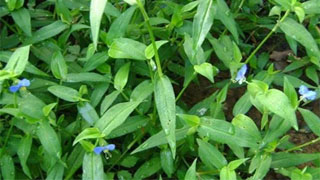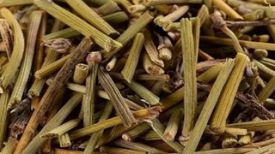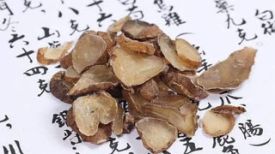
Nicknames: Qingcao, Ya'erjiao, Duckweed, Duckweed, Xiangtoucao, Pig Ear Vegetable, Horse Peel Melon, Fat Pig Grass
Harvesting and processing: Can be harvested throughout the year, fresh or sun dried.
Medicinal parts: whole plant
Origin: National
Family: Rainflower family
Original plant: duckbill grass
Plant condition: Perennial herb
Height 10-30cm. The rhizome is relatively short and nearly upright.
Petiole 10-20cm, with the base expanding into a cracked sheath; The leaves are ovate to ovate lanceolate, measuring 2-6 cm in length and 1-5 cm in width, with a short pointed tip and a rounded or slightly heart-shaped base.
The inflorescence is pulled out from the leaf sheath, with a short peduncle, a lanceolate bracts at the base, and 3-6 flowers; Flower quilt bell shaped, 6 deeply split, blue purple; Stamen 6, with one larger stamen inside, attached to the base of the anther, apical cleavage; Ovary with 3 compartments.
The capsule is oval in shape, about 12mm long, with a cracked dorsal chamber and many seeds. The flowering and fruiting period is from August to September.
Medicinal properties of duckbill grass:
【 Taste 】 Bitter; cool
【 Indications 】 Clearing heat; Cold blood; diuresis; Detoxification. Main cold and high fever; Pulmonary heat cough and asthma; pertussis; Coughing up blood; Vomiting blood; Collapse and leakage; Urine blood; Hot shower; Dysentery; Enteritis; Intestinal abscess; Dan poison; Sores and swelling; Throat swelling and pain; swelling and aching of gum; Wind and fire with red eyes; Snakebite; Poisoning by poisonous mushrooms
[Usage and Dosage] Oral administration: 15-30g decoction (30-60g fresh); Or mash the juice. External use: appropriate amount, massage and apply


